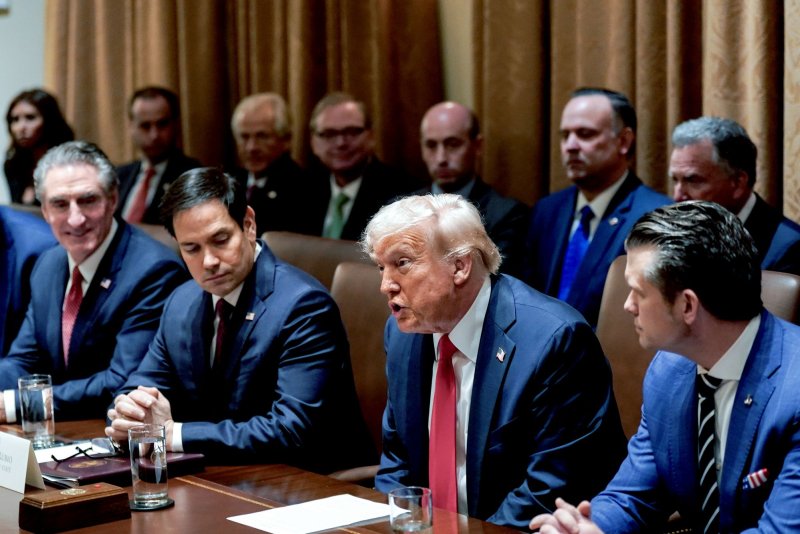A Trump administration official revealed that President Trump would meet with his top national security advisers on 3 March to consider “suspending or canceling American military aid to Ukraine,” The New York Times reported on 2 March.
The meeting with Secretary of State Marco Rubio and Defense Secretary Pete Hegseth on 3 March will address “a range of policy options for Ukraine,” including potentially halting “final shipments of ammunition and equipment authorized and paid for during the Biden administration,” according to the official who spoke anonymously to the Times.
This development follows a tense encounter between President Trump and Ukrainian President Volodymyr Zelensky at the White House last Friday. The meeting was described as “acrimonious” by British Prime Minister Keir Starmer, who noted, “Nobody wanted to see what happened last Friday.”
Following the rift, European leaders gathered in London on Sunday to form what Starmer called a “coalition of the willing” to develop a peace plan for Ukraine. “We are at a crossroads in history,” Starmer declared. “Europe must do the heavy lifting.”
The British leader expressed belief that despite Trump’s anger toward Zelenskyy, the US president remains “committed to a lasting peace agreement between Ukraine and Russia.” Starmer suggested that European nations could use their plan to persuade Trump to commit to American security guarantees.
Zelensky, speaking to reporters after the London meeting, acknowledged tensions but expressed optimism about his relationship with Trump. “I think our relationship will continue,” he said, though he criticized the public nature of their White House discussion. “I do not think it’s right when such discussions are totally open,” Zelensky stated, adding that “the format of what happened, I don’t think it brought something positive or additional to us as partners.”
The London gathering, which included leaders from 18 countries such as French President Emmanuel Macron, German Chancellor Olaf Scholz, and Canadian Prime Minister Justin Trudeau, demonstrated European solidarity with Ukraine. During the meeting, Starmer announced plans to allow Ukraine to use £1.6 billion ($2 billion) in British export financing to buy more than 5,000 advanced air defense missiles.
European Commission President Ursula von der Leyen pledged that the European Union would support Ukraine with economic and military aid, aiming to turn it into “a steel porcupine that is indigestible for potential invaders.”
Analysts note that Europe now faces pressure to increase defense spending. “Starmer has two goals,” said Mujtaba Rahman of the Eurasia Group. “Build an offer with the Ukrainians and Europeans that keeps the US positively engaged in Ukraine’s security, while simultaneously preparing for a worst-case scenario where that may not prove possible.”
The crisis has placed Britain in an unusual position as a bridge between Europe and the United States. Catherine Ashton, a former EU foreign affairs representative, noted that Starmer’s successful earlier meeting with Trump “reinforced his credentials as a leader for Europe.”
Read also:
- All eyes on UK as US-Ukraine relations crumble
- Could Europe survive if America leaves NATO? The 5% question
- “What’s at stake is too important”: French president urges continued US support for Ukraine amid growing tension




